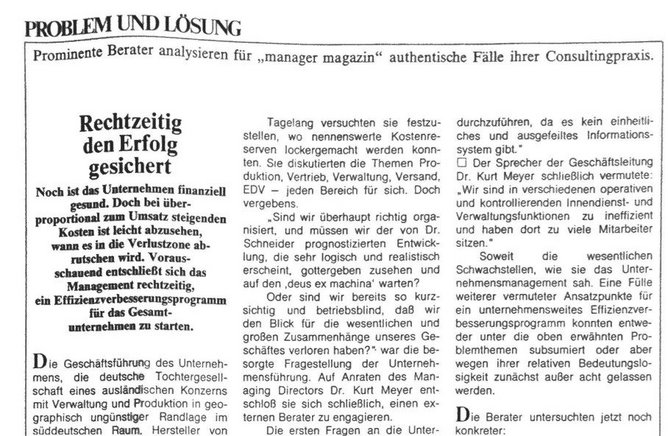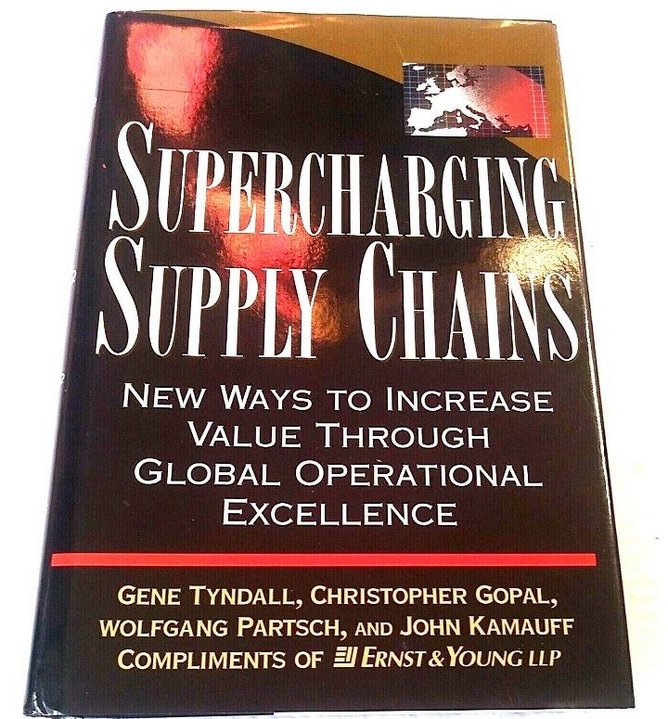Earthquake tech inspired Partsch to invent SCM in 1970s

In the November issue of Supply Chain we featured British logistician and business consultant, Keith Oliver as our ‘trailblazer’,and presented him as the person who coined the term ‘supply chain’. Upon publication, the article generated strong interest online, especially on LinkedIn.
Many people commented on the piece, with most saying the same thing: Keith Oliver may have been responsible for introducing the term ‘supply chain’ into popular culture, but he was not the one who gave it to the world.
That honour, we were told, should go to Wolfgang Partsch, whose LinkedIn profile describes him as the ‘Inventor of Supply Chain Management’.
Following feedback on LinkedIn we amended the Keith Oliver article, adding the following paragraph:
“It should be pointed out that Oliver was part of a team that created the concept of 'supply chain management'. The first project the team was involved in ran from 1980-82 in Switzerland, under the management of business analyst Wolfgang Partsch. The term first appeared in print in 1982, in the German business magazine, Wirtschaftswoche.”
Dr Partsch himself contacted us, grateful for the amendment, but added that we still didn’t have anything like the full story of how ‘supply chain management’ was born. And so we fixed up an interview, and Dr Partsch told us, in captivating detail, how he helped change the face of supply chain forever.
Partsch changed the face of supply chain forever
Partsch was born in Vienna, and went on to gain a PhD in Physics from the city’s university. For four years in the early 1970s he was a software engineer, before becoming a logistics consultant with Kearney, in 1975. Three years on, he joined Booz.Allen & Hamilton, where as a Senior Associate he began formulating the concept of supply chain management, with Keith Oliver part of the same team.
“Keith was a consultant,” says Partsch. ‘I was younger, and a mere associate. Although supply chain management was my concept, Keith was the one who presented it to clients and so he ended up getting all the glory,” he adds, grinning.”That’s just the way it is.”
Partsch’s vision for how companies can best make, move and deliver goods around the world may have been formulated over 50 years ago, but with so much disruption and uncertainty today, it has never held more sway.
“My vision was to break up information silos,” he says.
Sound familiar?
He adds: “The goal was to help businesses see from one end to the other, operationally, with no interruption of information.”
Or, in today’s terminology, end-to-end supply chain visibility.
Partsch SCM thinking based on science
Partsch’s revolutionary thinking was based not on business thinking, but natural science.
“It really struck me how, with earthquakes, you can measure shockwaves from thousands of miles away. My vision was of something similar for supply, whereby something like purchasing has an effect on sales and production at the other side of the chain,” he explains.
Partsch’s thinking here was crystallised by a seminal 1961 book called Industrial Dynamics, by Jay Forrester.
“Forrester was an industrial engineer, and it’s a very mathematical book, but I am a physicist, and so I understood his ideas.”
It was in the late 1970s that Partsch’s vision for the future of supply began to take shape, and by the early 1980s, he had formulated a coherent supply strategy that was fit to be presented to boardrooms.
It was on a journey to a Swiss client that Partsch and his team chanced upon a name for his concept, and all thanks to a snowstorm.
“We were driving to a client through heavy snow,” he recounts. “We had to get the snowchains out to put on the wheels, and that’s when someone got the idea of using the idea of a chain to describe our strategy of managing supply, because chains have many links that form something whole.”
Now, 40 years on, Dr Partsch’s thinking has helped hundreds of companies – including Pierre Cardin, Red Bull, Nestlé, Siemens, IBM, and Ferrari – save billions of dollars, by streamlining their supply chains, and making them run more efficiently.








